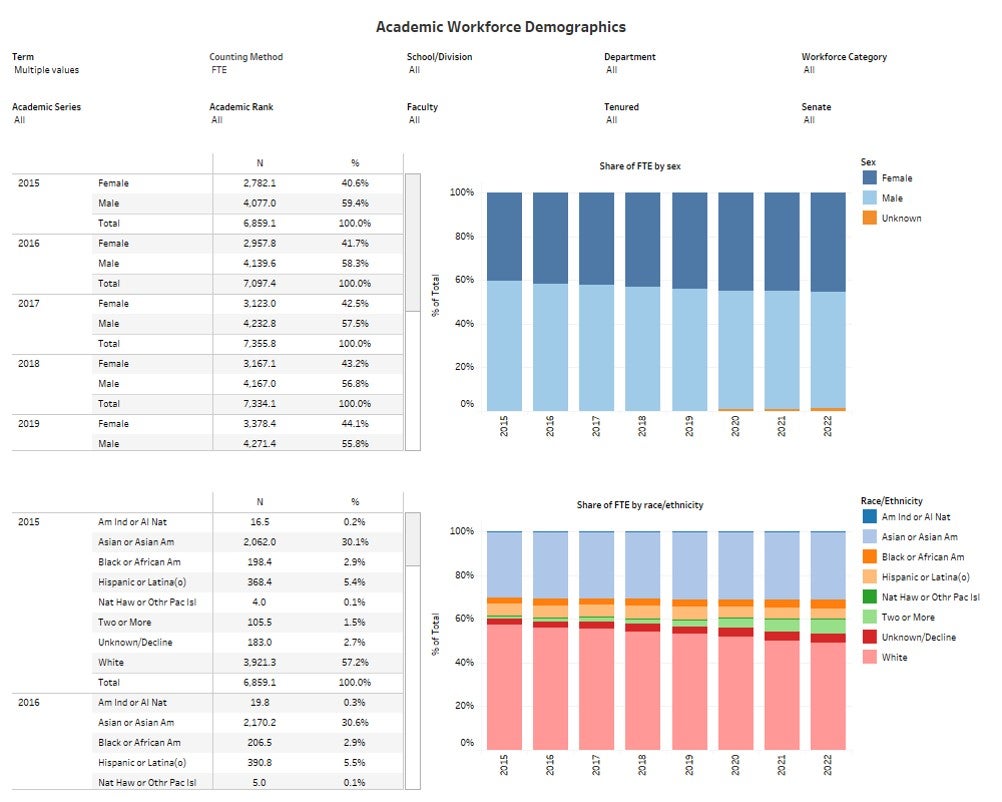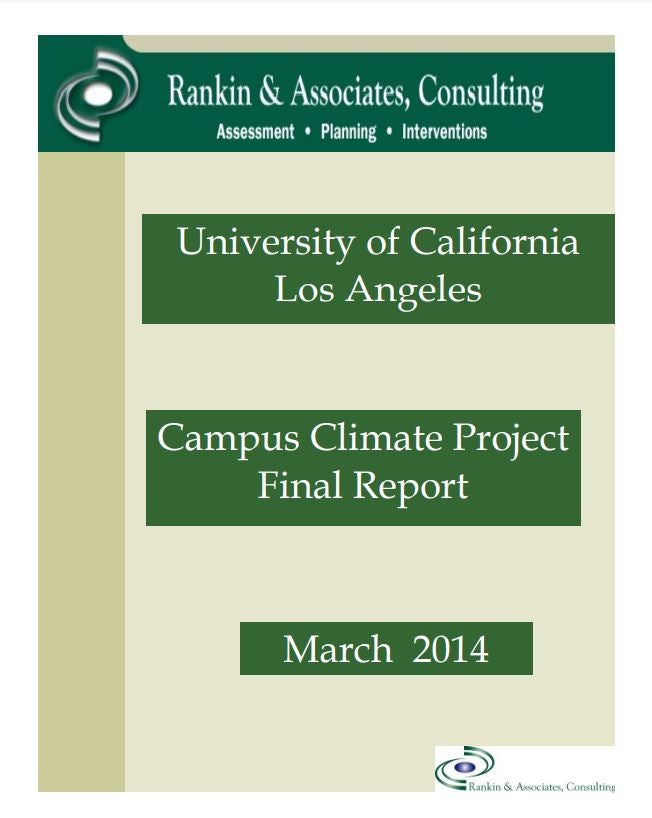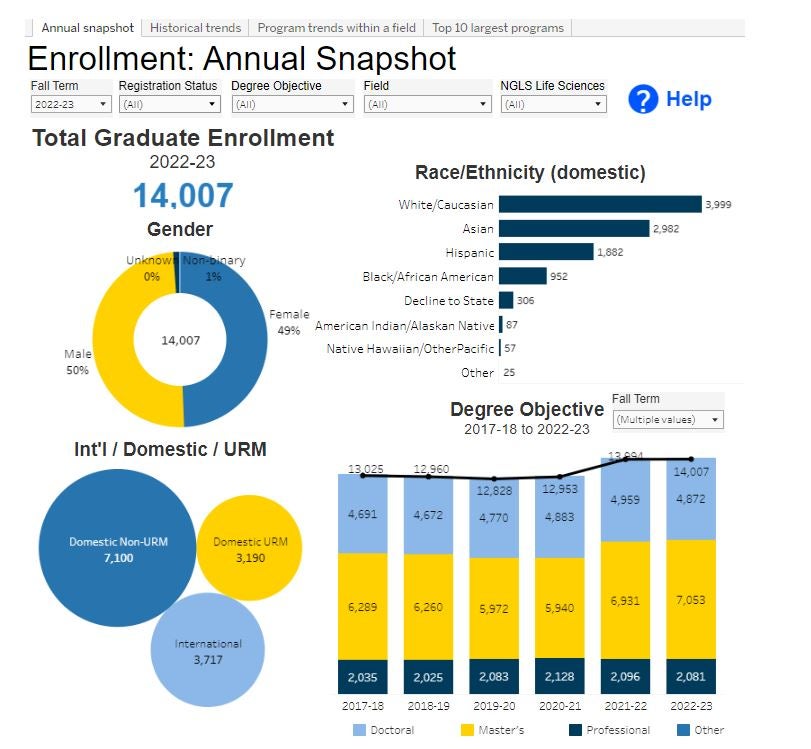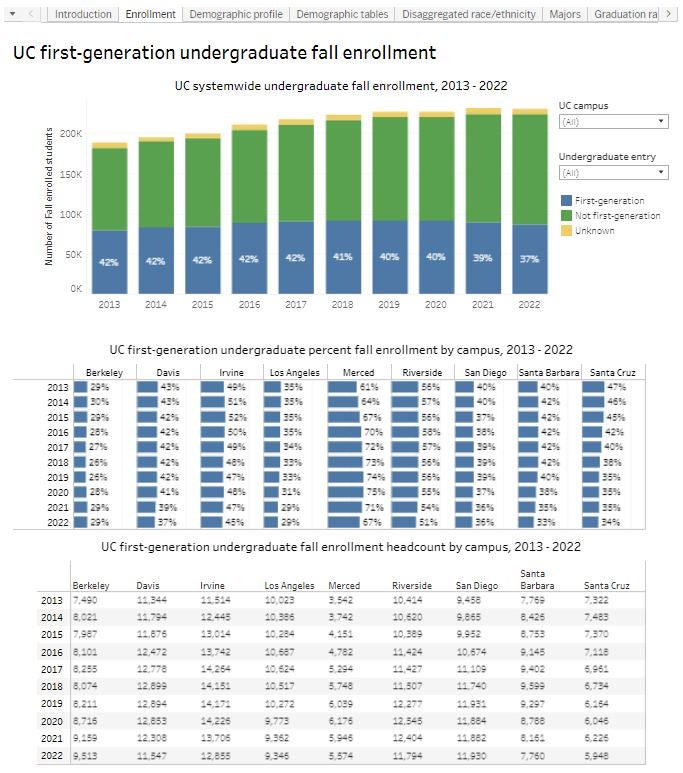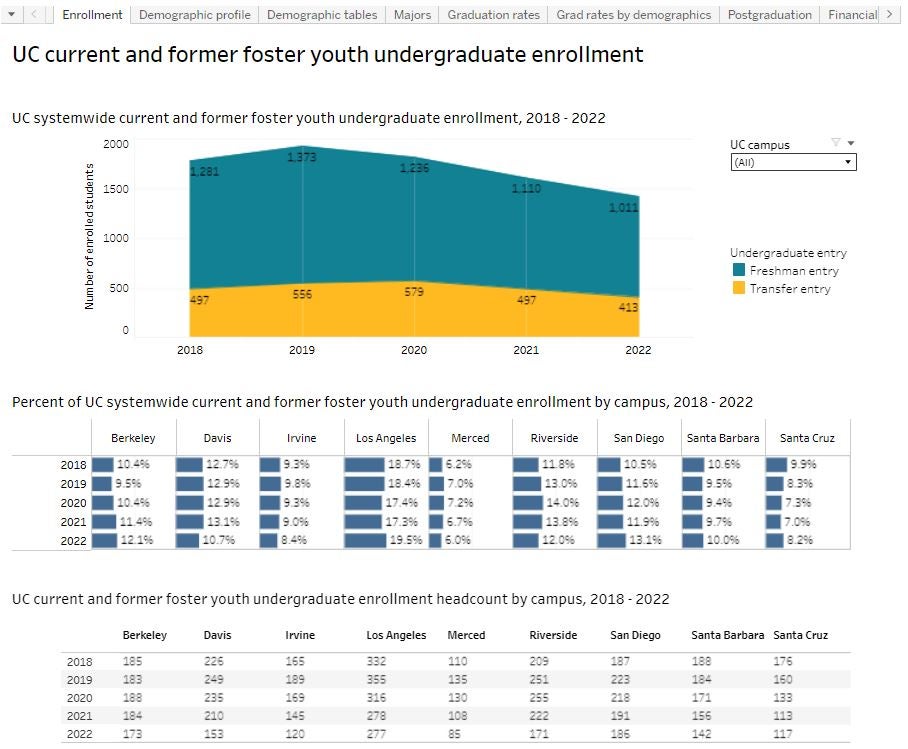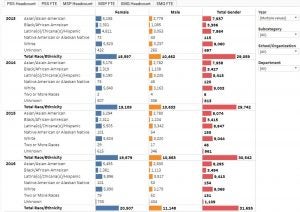Overview
Each of the surveys listed below are administered to UCLA students and contain items related to campus climate and EDI topics.
CIRP Freshman Survey
The CIRP Freshman Survey is sponsored by the Higher Education Research & Information (HERI). Although not overtly about campus climate, the survey does contain a number of EDI-related items. In addition, respondents self-report gender identity, sexual orientation, race/ethnicity, and citizenship.
The CIRP was administered bi-annually to incoming UCLA freshmen by the Student Affairs Information and Research Office (SAIRO) for nearly 50 years, until it was replaced in 2021 by the Entering Student Survey. To learn more about UCLA’s administration of the CIRP (such as contents, schedule, participants, response rates, and past instruments) and to view available reports, see SAIRO’s CIRP Freshman Survey homepage.
Doctoral Experience Survey
The University of California Office of the President (UCOP)’s Doctoral Experience Survey surveys current doctoral students on the topics of academic progress and skills, professional development, advising and mentorship, financial support, and career aspirations. Although the survey is not explicitly about campus climate, UCOP data tables allow users to disaggregate item responses by gender, race/ethnicity, and residency status.
The survey was administered to UCLA doctoral students in 2010, 2014, 2017, and 2020.
Entering Student Survey
The Entering Student Survey (ESS) is administered biennially to all incoming UCLA undergraduate students. Although not overtly about campus climate, the survey does contain a number of EDI-related items. In addition, respondents self-report gender identity, sexual orientation, race/ethnicity, disability status, and first-generation college status.
The survey was administered by SAIRO in 2021 and 2023, replacing the CIRP and TSS. For more information on survey design, background, and findings, visit the SAIRO ESS homepage.
Graduate and Professional Student Survey
The Graduate and Professional Student Survey (GPSS) is an internal survey designed to assess a variety of issues relevant to graduate and professional students, including wellness, campus climate, interaction with others, progress and skills, use of time and resources, ethics, and international student issues. Demographic data are collected on disability status, socioeconomic status, religion, political orientation, gender identification, sexual orientation, and marital status.
The survey was administered to UCLA graduate students in 2010, 2014, 2017, and 2020. For more information on survey design, background, and findings, visit the SAIRO GPSS homepage.
Graduating Senior Survey
The Graduating Senior Survey (GSS) is an annual survey designed and administered by the UCLA Center for the Advancement of Teaching. The survey collects information on graduating senior students’ UCLA experiences, including academics, student development, campus climate, and post-graduation plans.
To learn more about the survey and to view 2023 findings, visit the UCLA Senior Survey Overview homepage.
Master’s Completion Survey
The Master’s Exit (Completion) Survey is an annual survey developed and administered by the UCLA Graduate Education Office. Among other topics, the survey contains a set of items designed to measure campus climate and perceived obstacles to success.
For more information about the survey, contact the Graduate Education Institutional Research Office.
National College Health Assessment
The National College Health Assessment (NCHA) was developed by the American College Health Association (ACHA) to collect information on the knowledge, attitudes, beliefs, and health behaviors of students in American universities and colleges. In a preamble to the survey, respondents are informed that they will be asked about topics that include illegal substance use; interpersonal, sexual, and intimate partner violence; mental health and thoughts of suicide; disordered eating; sexual behavior; and incidents of exclusion, harassment, and racism.
The NCHA was administered at UCLA in 2012, 2014, 2016, 2019, 2021, and 2023. For more information on UCLA’s participation and to view reports and findings, visit SAIRO’s NCHA homepage.
Transfer Student Survey
The Transfer Student Survey (TSS) was designed by the UCLA SAIRO as a companion to the CIRP Freshman Survey. Although not overtly about campus climate, the survey does contain a number of EDI-related items. In addition, respondents self-report disability status, gender identity, sexual orientation, race/ethnicity, political orientation, and religion.
The TSS was administered bi-annually to incoming UCLA transfer students by the Student Affairs Information and Research Office (SAIRO) from 2005 to 2021, when it was replaced by the Entering Student Survey. To learn more about UCLA’s administration of the TSS (such as contents, schedule, participants, response rates, and past instruments) and to view available reports, see SAIRO’s TSS homepage.
University of California Undergraduate Experience Survey (UCUES)
The University of California Undergraduate Experience Survey (UCUES) assesses attitudes toward different aspects of campus life including academic advising, campus climate, courses & instruction, and interaction with faculty. The survey also documents students’ self-perceptions and goals, political beliefs, and perceptions of the role of the research university. Background demographic information is collected on family immigration background, socioeconomic status, religion, marital status, disability status, gender identity, sexual orientation, and political orientation.
The UCUES has been administered to undergraduate students bi-annually since 2006. To view information about survey development and background or to explore UCOP data tables, follow links on the UCOP UCUES homepage. To view UCLA-specific information about survey administration and findings, visit the SAIRO UCUES homepage.


